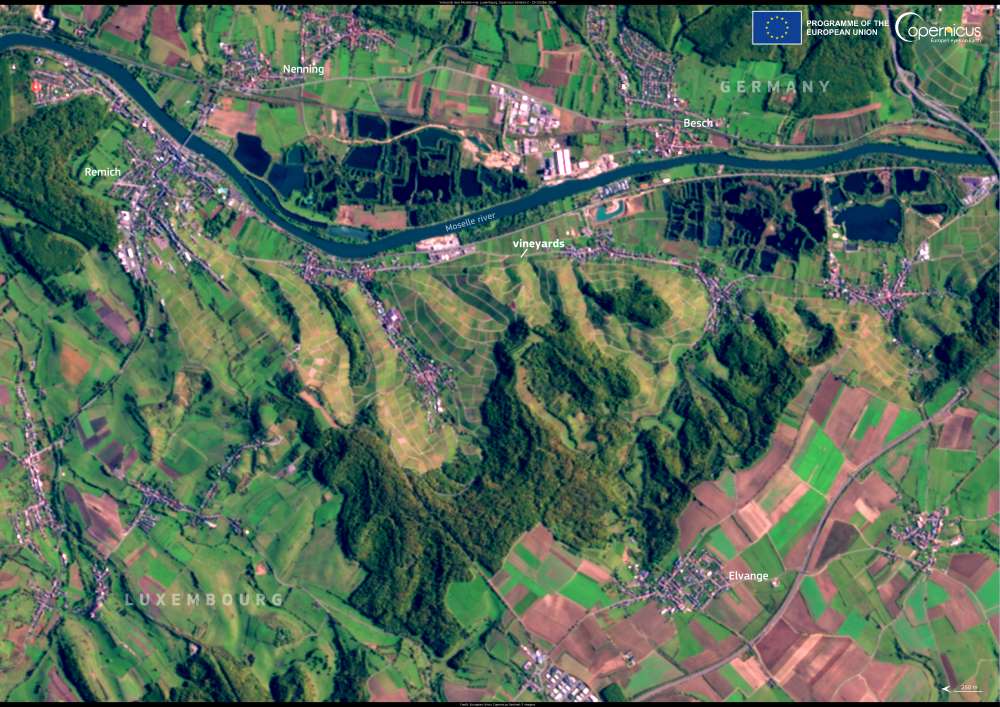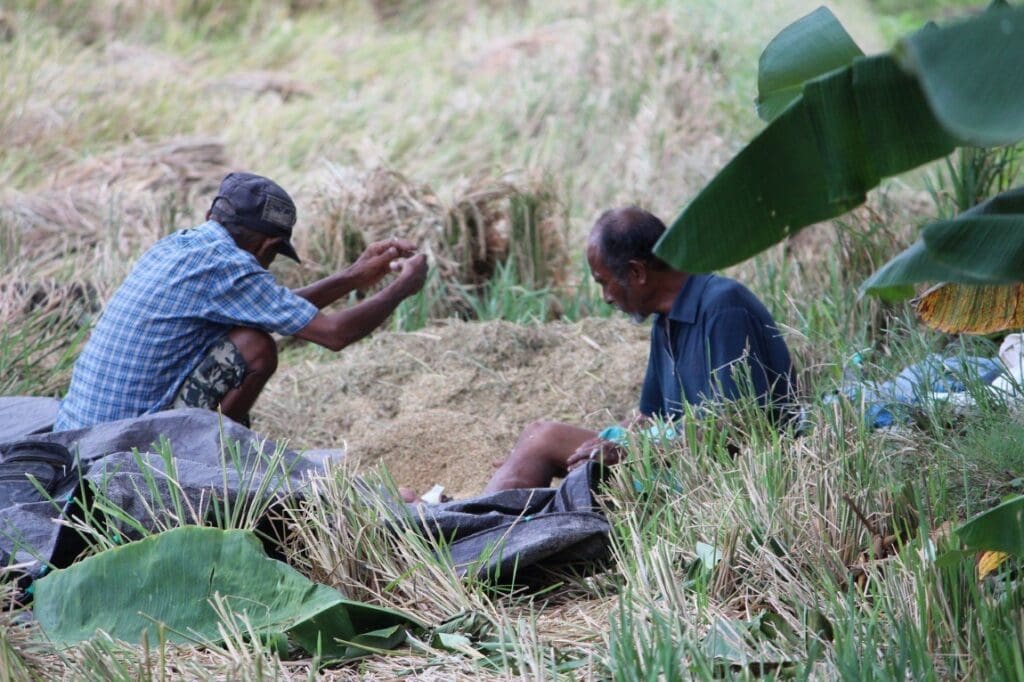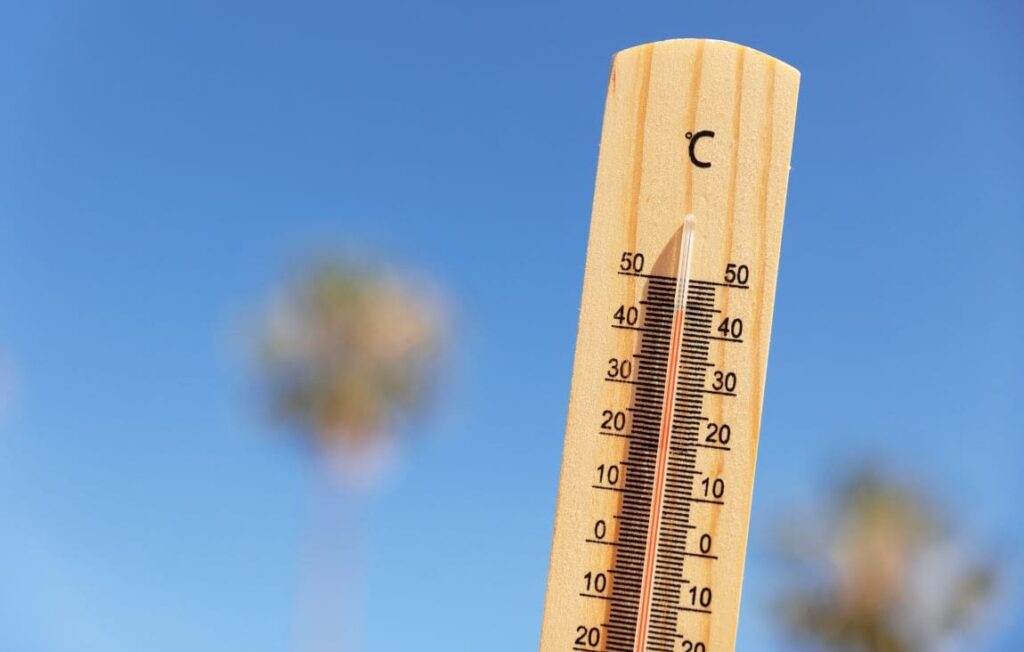This image, captured by the Copernicus Sentinel-2 satellite on 23 October 2024, reveals the scenic Moselle wine region along the border between Luxembourg and Germany. The winding Moselle River, which serves as a natural boundary for 42 km, shapes the area’s unique microclimate, creating ideal conditions for vineyards that have thrived since Roman times.

On the Luxembourg side, terraced vineyards dominate the rolling hills, producing renowned wines such as Riesling, Pinot Gris, and Auxerrois. The soil, rich in limestone and clay, also contributes to the production of Crémant, a sparkling wine highly regarded in the region. Winemakers here blend centuries-old traditions with modern techniques to maintain the area’s reputation for high-quality viticulture.
The Copernicus Sentinel satellites assist in monitoring crop conditions, land use, and yield forecasts, supporting sustainable wine production and agriculture worldwide.
Featured image credit: European Union, Copernicus Sentinel-2 imagery



